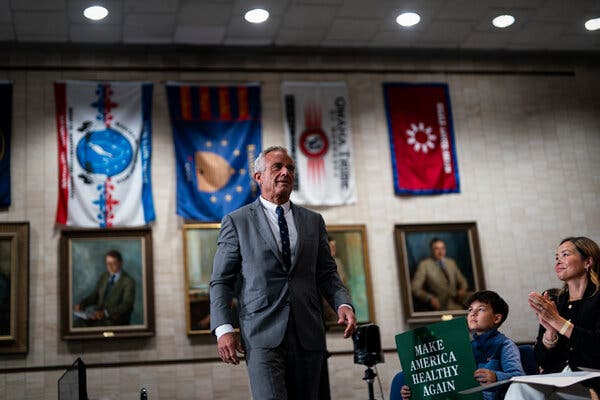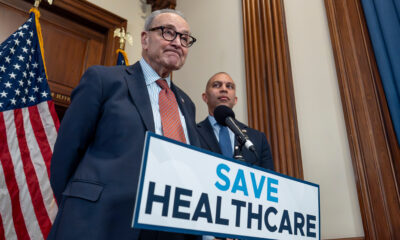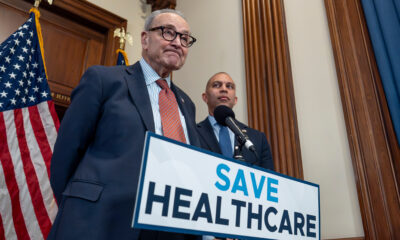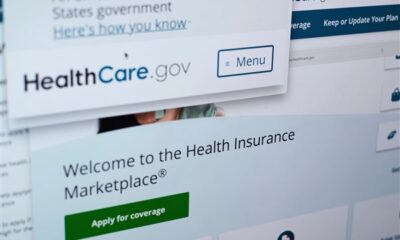Health
Global Vaccination Efforts Surge Despite U.S. Anti-Vaccine Sentiment

The global demand for vaccines is intensifying, yet resistance in the United States poses challenges. In Vietnam, a push to make Covid-19 vaccinations mandatory for children faced significant opposition from parents who feared potential side effects and circulated rumors about expired doses. This skepticism ultimately influenced health policy, resulting in the abandonment of the vaccine mandate. Nevertheless, the pandemic reignited a sense of appreciation for routine vaccinations, with remarkable coverage rates achieved for essential immunizations.
As of 2024, Vietnam reported a 98 percent coverage rate for the first dose of the measles vaccine and an impressive 99 percent for the polio vaccine. This resurgence in vaccination enthusiasm highlights a commitment from the Vietnamese government to bolster public health systems. According to Basil Rodrigues, UNICEF’s Regional Health Adviser for East Asia and the Pacific, the response to the pandemic has fostered a global commitment to strengthening vaccine infrastructures. “There was a scare, and that’s why there was an almost global commitment to say, ‘We will now work toward making a more robust system,’” Rodrigues stated.
Countries such as Brazil, Nigeria, Hungary, and Samoa are also ramping up their vaccination efforts in the wake of Covid-19, striving to recover from setbacks that have led to increased outbreaks of diseases like measles and yellow fever. The global health community is facing a pivotal moment as it seeks to combat these rising threats while dealing with the challenge of vaccine hesitancy, particularly in the United States.
The ongoing situation in the U.S. contrasts sharply with the proactive measures being taken in other nations. As the world witnesses a surge in vaccine skepticism, the reluctance to embrace Covid-19 vaccines has sparked broader anti-vaccine sentiments. This has raised alarms among health officials who fear that such attitudes could undermine decades of progress in vaccination coverage.
In light of these developments, international health organizations are urging countries to prioritize vaccination campaigns. The objective is to not only address immediate health threats but also to cultivate long-term trust in vaccines. With the specter of vaccine-preventable diseases looming, the need for a cohesive global response has never been more critical.
As nations expand their vaccination programs, the gaps left by vaccine hesitancy in certain regions highlight the importance of community outreach and education. Engaging parents and caregivers in discussions about vaccine safety and efficacy is essential to dispelling misinformation and fostering trust in public health initiatives.
In summary, while Vietnam and other nations are making significant strides in vaccination coverage, the challenges posed by vaccine hesitancy in the United States pose a formidable barrier to achieving global health goals. As efforts continue to bolster vaccination rates worldwide, the future of public health hangs in the balance, underscoring the need for collaboration and commitment to collective well-being.
-

 Technology5 months ago
Technology5 months agoDiscover the Top 10 Calorie Counting Apps of 2025
-

 Technology2 weeks ago
Technology2 weeks agoOpenAI to Implement Age Verification for ChatGPT by December 2025
-

 Health3 months ago
Health3 months agoBella Hadid Shares Health Update After Treatment for Lyme Disease
-

 Health3 months ago
Health3 months agoAnalysts Project Stronger Growth for Apple’s iPhone 17 Lineup
-

 Health3 months ago
Health3 months agoErin Bates Shares Recovery Update Following Sepsis Complications
-

 Technology5 months ago
Technology5 months agoDiscover How to Reverse Image Search Using ChatGPT Effortlessly
-

 Technology3 months ago
Technology3 months agoElectric Moto Influencer Surronster Arrested in Tijuana
-

 Technology2 months ago
Technology2 months agoDiscover 2025’s Top GPUs for Exceptional 4K Gaming Performance
-

 Technology5 months ago
Technology5 months agoMeta Initiates $60B AI Data Center Expansion, Starting in Ohio
-

 Technology5 months ago
Technology5 months agoRecovering a Suspended TikTok Account: A Step-by-Step Guide
-

 Health5 months ago
Health5 months agoTested: Rab Firewall Mountain Jacket Survives Harsh Conditions
-

 Lifestyle5 months ago
Lifestyle5 months agoBelton Family Reunites After Daughter Survives Hill Country Floods





















